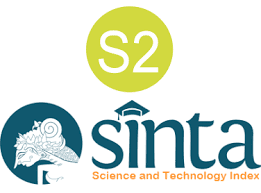Crafting the Alternative of Finance Hegemony: Returning Gold Dinar Exchange Economy
Abstract
The aim of this paper is to examine the contemporary issues of global political economy on the predominance of finance capital as the pivotal role in moulding the current global political economy architecture; its impact particularly to the developing states; and this paper also attempt to propose the alternative through the returning of gold monetary system based on the idea of gold dinar exchange economy.
Full Text:
PDFReferences
Amin, S. (2003).Obsolescent Capitalism: Contemporary Politics and Global Disorder (P. Camiller, Trans.). London & New York: Zed Books.
Breuer, K. (2008). Far From Retiring: DR. Mahathir's Advice is Still Sought. Globalia Magazine, 6-9.
Clark, W. R. (2005). Petrodollar Warfare: Oil, Iraq and the Future of the Dollar. Gabriola Island, Canada: New Society Publisher.
Cox, R. W. (1987).Production, Power and World Order: Social Forces and the Making of History. New York: Columbia University Press.
Cox, R. W. (1996a). Social Forces, States and World Orders: Beyond International Relations Theory. In R. W. Cox & T. J. Sinclair (Eds.), Approaches to World Order (pp. 85-123). New York: Cambridge Unversity Press.
Engdahl, F. W. (2004). A Century of War: Anglo-American Oil Politic and the New World Order (2 ed.). New York: Pluto Press.
Friedman, T. L. (2005). The World Is Flat: A Brief History of the Twenty-First Century. New York: Farrar, Straus and Giroux.
Fukuyama, F. (1992).The End of History and the Last Man. New York: Free Press.
Germain, R. D. (1997). The International Organization Credit: States and Global Finance in the World Economy. Cambridge: Cambridge University Press.
Gill, S. (Ed.). (1993). Gramsci, Historical Materialism and International Relations. Cambridge: Cambridge University Press.
Gilpin, R. (1987). The Political Economy of International Relations. Princeton: NJ: Princeton University Press.
Gilpin, R. (2000). The Challenge of Global Capitalism: The World Economy in the 21st Century. Princeton and Oxford: Princeton University Press.
Held, D., Mcgrew, A., Goldblatt, D., & Perraton, J. (Eds.). (1999). Global Transformation: Politics, Economics, Culture. Cambridge: Polity Press.
Henderson, H. (2001). The Global Casino. In K. S. Jomo & S. Nagaraj (Eds.), The Globalization versus Development. New York: Palgrave Publisher Ltd.
Hilferding, R. (1910). Finance Capital : a Study of the Latest Phase of Capitalist Development (M. Watnick & S. Gordon, Trans.). London: Routledge & Kegan Paul.
Hobsbawn, E. J. (1968). Industry and Empire: the Making of Modern English Society, 1750 to the Present Day. New York: Pantheon Books.
Hosein, I. N. (2007).The Gold Dinar and Silver Dirham: Islam and the Future of Money. San Fernando: Masjid Jami'ah.
Kegley, C. W., & Wittkopf, E. R. (2006).World Politics: Trend and Transformation (10th ed.). Belmont: Thomson Wadsworth.
Keohane, R. O., & Nye, J. S. (1977).Power and Interdependence: World Politics in Transition. Boston: Little Brown.
Khaldun, I. (1967). The Muqaddimah: An Introducton to History (Abridged ed.). Princeton: Princeton University Press.
Kindleberger, C. P. (1996). Manias, Panics, and Crashes: A History of Financial Crises (3rd ed.). New York: John Wiley & Sons, Inc.
Kynaston, D. (1994). The City of London. London: Chatto & Windus.
Langley, P. (2002). World Financial Order: An Historical International Political Economy. London: Routledge.
Lenin, V. I. (1917).Imperialism, the Highest Stage of Capitalism. Moscow: Progress Publisher.
Lewis, N. (2007). Gold: the Once and Future Money. New Jersey: John Willey & Sons, Inc.
Magdoff, H. (1969). The Age of Imperialism: the Economics of US Foreign Policy. New York: Modern Reader.
Marx, K. (1904). A Contribution to the Critique of Political Economy. Chicago: Charles H. Kerr & Company.
Pijl, K. v. d. (1998). Transnational Classes and International Relations. London: Routledge.
Polanyi, K. (1944). The International System. In The Great Transformation: the Political and Economic Origins of Our Time (pp. 3-30). Boston: Beacon Press.
Rupert, M. (1995).Producing Hegemony: the Politics of Mass Production and American Global Power. Cambridge: Cambridge University Press.
Scholte, J. A., & Schnabel, A. (Eds.).(2002). Civil Society and Global Finance. London: Routledge.
Sklair, L. (2001). The Transnational Capitalist Class. Oxford: Blackwell Publisher.
Soederberg, S. (2004).The Politics of the New International Financial Architecture: Reimposing Neoliberal Domination in the Global South. London & New York: Zed Books.
Soederberg, S. (2007). The Transnational Debt Architecture and Emerging Markets: The Politics of Paradoxes and Punishment. In P. James & H. Patomaki (Eds.), Globalization and Economy: Globalizing Finance and the New Economy (Vol. 2, pp. 42-66). London: Sage Publications Ltd.
Spiro, D. E. (1999).The Hidden Hand of American Hegemony: Petrodollar Recycling and International Markets. New York: Cornell University Press.
Strange, S. (1986). Casino Capitalism Oxford: Basil University.
Strange, S. (1996). The Retreat of the State: The Diffusion of Power in the World Economy. New York: Cambridge University Press.
Walter, A. (1993). World Power and World Money: The Role of Hegemony and International Monetary Order. London: Harvester Wheatsheaf.
Wright, C. (2000). A Community Manifesto. London: Earthscan Publications Ltd.
Refbacks
- There are currently no refbacks.










